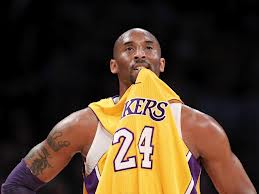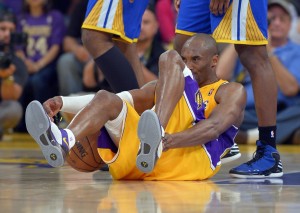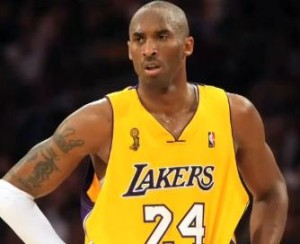 LOS ANGELES — “You can only control what you can control. That’s really tough to process, it’s tough to let
LOS ANGELES — “You can only control what you can control. That’s really tough to process, it’s tough to let that go. But it’s the truth, man.”
that go. But it’s the truth, man.”
That was Kobe Bryant at the podium Tuesday night after his Los Angeles Lakers dropped their season opener to the Houston Rockets, a 108-90 home loss that wasn’t as competitive as even the lopsided score might indicate.
Small picture, he was speaking specifically about the spirit-crushing injury – a broken right tibia – suffered by first-round pick Julius Randle in the fourth quarter. Big picture, Bryant’s words serve as a guide to the rest of this season, and probably his career.
Technically speaking, Bryant had already returned last December from the Achilles tendon injury suffered at the end of the 2012-13 campaign. Except that he was covered thick with rust and not yet fully healthy. Bryant lasted six games before a knee injury shut him down for good.
Meaning his return – his real return – came Tuesday.
Some things, starting with the ovation from the Lakers faithful, were exactly the same. He’s still the best player in purple and gold, with a seemingly endless supply of jab steps and pump fakes aided by impeccable footwork. He’s still the guy who can absorb an elbow to the face from Dwight Howard without flinching, just as he once absorbed this with nary a blink.
Everything else, though, appears totally different.
Never has Bryant been surrounded by less talent than he has this season, a thin group now thinner with Randle sidelined. Never has there been less hope of a playoff run for a Bryant-led team. True, Kobe has been asked to hoist teams on his back  before, most prominently in the 2004-05 and 2005-06 seasons. But that guy, coached by Phil Jackson, averaged almost 40 minutes and well over 30 points a night in a Western Conference with less depth – and still barely qualified for the postseason.
before, most prominently in the 2004-05 and 2005-06 seasons. But that guy, coached by Phil Jackson, averaged almost 40 minutes and well over 30 points a night in a Western Conference with less depth – and still barely qualified for the postseason.
Bryant has never tried it at 36 years old, coming off two major injuries, with about 20 years of regular season and playoff minutes on the odometer.
No guard ever has.
“I’m coming off an Achilles injury, and I’m old as shit,” Bryant said. “So it’s like, you’ve got two things working against you. But as I sit here today, I can honestly tell you I feel completely fine.”
Fine enough to carry a weak team to the top eight, like you did almost a decade ago?
“If you’re asking me if I’m capable,” he said, “I absolutely am.”
But while the self-confidence remains unshakable, Bryant understands and has seemingly made peace with an inability to fully bend reality to his will. Not everything can be controlled.
“You’ve kind of got to give yourself up to that,” he said. “You learn that you have to do it. Sometimes life circumstances put you in a position where you have no choice but to handle it that way.”
This season will almost undoubtedly put Bryant in such a position. At this stage of his career, he is still capable of getting his shots, but the ratio of high and low percentage attempts is swinging well away from the ideal. The technical artistry makes every make look fantastic, but Kobe might set an NBA record for contested 16-to-21 footers this season.
The Rockets felt little need to double Kobe, happy to allow him to beat them with tough jumpers (he finished with 19 points on 6-of-17 from the floor) rather than leave a less-skilled teammate open for an easy look. Nor, save perhaps Jeremy Lin, do the Lakers have anyone capable of regularly creating low-effort points for Bryant.
Only in semi-transition was Bryant able to create easy offense, whether for himself or with the pass. As a group, the Lakers  shot only 35.4 percent on Tuesday.
shot only 35.4 percent on Tuesday.
Bryant provided plenty of legitimate if mundane explanations for the lopsided loss. Nick Young is out with a thumb injury, and the Lakers badly need his offense. Defensively, the Lakers let Houston shoot a robust 41.4 percent from the arc and sent them to the line 50 times, a worst-of-both-worlds combo best not repeated.
“You’re trading three for two, and you’re also giving them freebies at the line. We have to be able to defend without fouling, or run them off the 3-point line,” he said. “It’ll be one or the other.”
Likely, though, even the best blueprint for team success won’t matter much, because the raw material, whether talking about Bryant today vs. Bryant circa 2005 or the guys surrounding him this season, just isn’t good enough. The expectation from many is that Kobe, while perhaps patient early, will eventually get frustrated. There will be prodding of the front office, whether subtle or more overt. His career clock, after all, is getting near midnight, and patience has never been a virtue.
RELATED: Brian Kamenetzky’s Lakers season preview
Unless, of course, Bryant truly has learned to give in to circumstances. There’s no avenue to quick improvement for this season’s team. Next season, who knows if someone will want their money? Kobe can’t force the Lakers to make moves now any more than he could force them to hire Phil Jackson in 2012. He can demand his teammates work hard, and they likely will. But he can’t turn Wes Johnson into Scottie Pippen.
And despite the aforementioned belief in his ability to lead a team to the postseason, even Kobe acknowledged – if only in vague terms – he can’t approach the challenge like he did in his late 20s. Bryant’s own skill set is a variable he can’t manipulate in the same way.
“It’ll be different,” he said.
Bryant has spent a career exerting his will over everything in his domain with great success. Now we will see if he can truly let go, only demanding control of what really can be controlled. And more importantly, learn if he can live with the results.
Brian Kamenetzky is a regular contributor to SheridanHoops.com. Follow him and his brother, Andy, on Twitter.